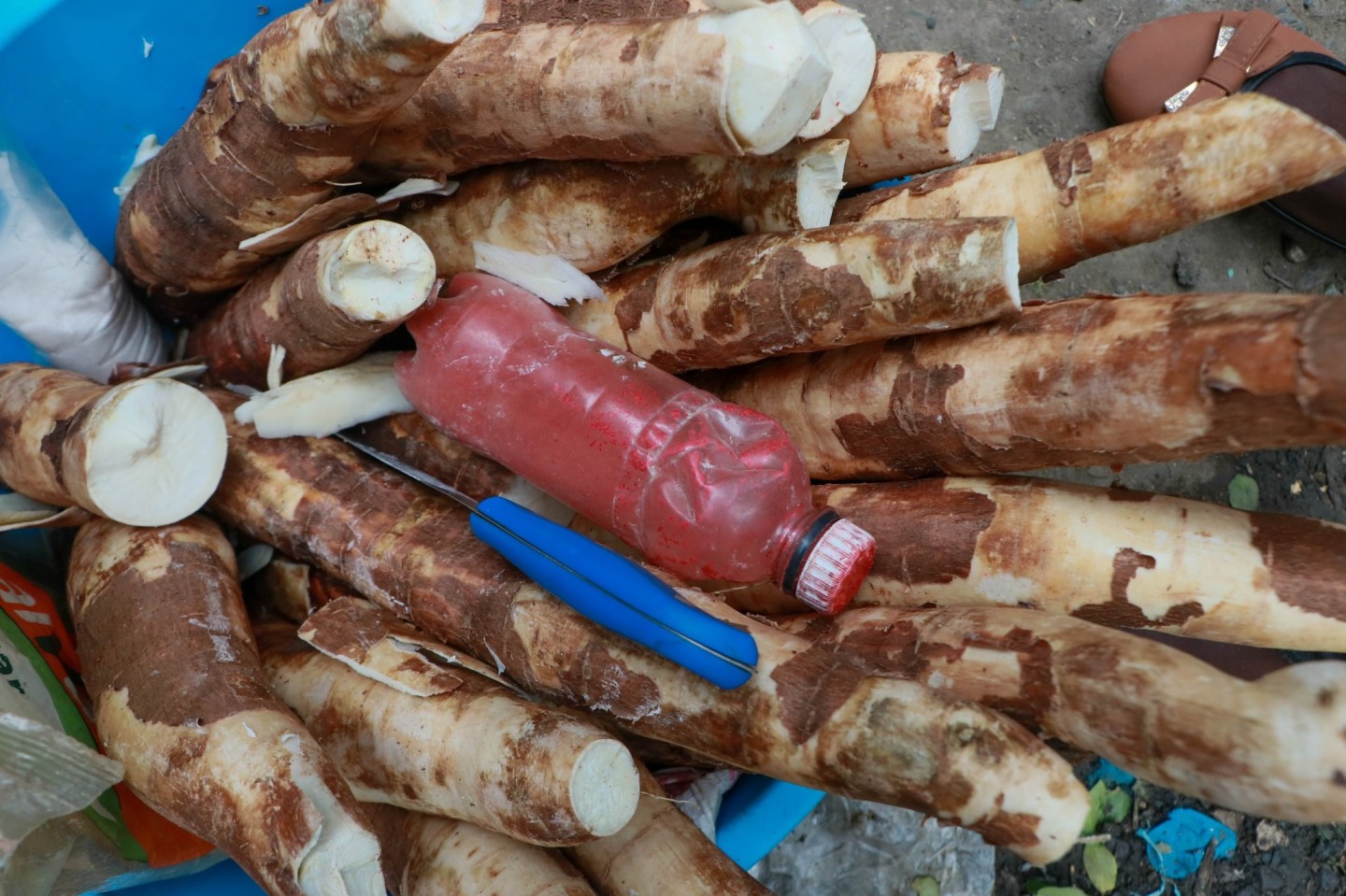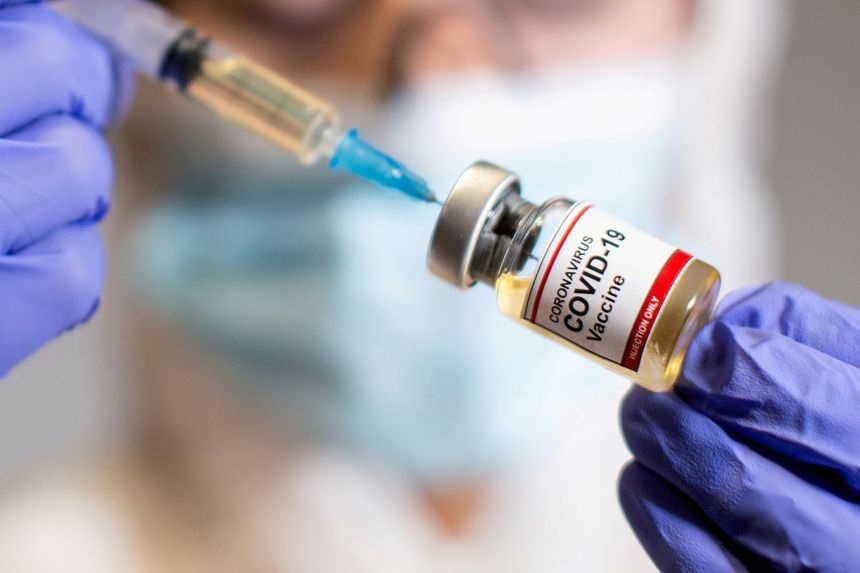Raw cassava risks: Why proper preparation is crucial for safety

However, Maingi admits he is not aware of any side effects of consuming raw cassava, as it has always been a significant part of his diet.
Ken Murangeri, a boda boda operator in Eastleigh, relishes raw cassava as a snack, often adding a sprinkle of salt and a touch of masala for extra flavour.
Raw cassava is gaining popularity in Eastleigh and Nairobi, particularly among men who now prefer it uncooked rather than traditional preparations.
More To Read
- Why are over 670 million people going hungry?
- 5.7 million people face food insecurity in Haiti
- In Africa’s Sahel, conflict and climate change force millions from their homes
- Over 90 per cent of Guineans back Constitution that may let coup leader seek presidency
- How farmers are integrating modern, traditional farming models to beat food insecurity
- Africa’s agri-food trade more than doubles, but hunger still soars - report
“When you eat raw cassava, you don't feel hungry quickly, which is why I enjoy it, especially on busy days when I can snack on it while on the move. Here in Eastleigh, it’s sold in various forms—roasted, boiled, and raw,” Murangeri says.
However, Murangeri cautions against mixing raw and cooked cassava. “I once ate a lot of raw cassava as a snack, then later had some boiled cassava at home. I ended up with stomach issues and felt weak. Since then, I’ve learnt my lesson and now stick to eating just one form at a time.”
He acknowledges having heard the myths about poisonous cassava but notes that he has never personally experienced any issues.
Thomas Maingi, another Eastleigh resident, grew up in a family where cassava was a staple, primarily boiled and milled into flour. Now, living far from home, eating raw cassava brings back memories of his childhood. He acknowledges the importance of properly preparing raw cassava and shares his insights on its consumption.
“I eat raw cassava frequently in Eastleigh, sometimes daily. It's crucial to peel it thoroughly and remove the fibrous, stringy part in the middle, according to my experience. For us, it's a normal and enjoyable snack that can be eaten at any time of the day,” he explains.
However, Maingi admits he is not aware of any side effects of consuming raw cassava, as it has always been a significant part of his diet.
 Raw cassava sold by Janice Muthoni in Eastleigh, Nairobi. (Photo: Justine Ondieki)
Raw cassava sold by Janice Muthoni in Eastleigh, Nairobi. (Photo: Justine Ondieki)Raw cassava sold by Janice Muthoni in Eastleigh, Nairobi. (Photo: Justine Ondieki)
Janice Muthoni, a cassava trader in Eastleigh, noticed a rising demand for raw cassava as a snack and identified a unique market opportunity. Since then, she has dedicated herself to this niche. After years of grappling with several unsuccessful businesses, she has succeeded in this new endeavour.
“Since I began this business, I’ve seen a growing number of customers who prefer raw cassava. A lot of people think it has calcium, which is why they like to eat it in its raw form. I prepare the raw cassava to their liking to satisfy their preferences and meet their needs.”
Muthoni sells cassava priced between 20 and 100 shillings, depending on the customer's preference. She sells her cassava at various locations, with the majority of her customers being men, though some women also enjoy it. Muthoni ensures she caters to different tastes and needs, offering a range of options to suit her diverse clientele.
“Every day, I visit Marikiti to purchase cassava. I typically buy cassava worth 500 shillings each day and make a daily profit of around 800 shillings from selling it. This consistent profit allows me to sustain and grow my business while serving my customers effectively.”
She explains that she selects good cassava by tasting it, avoiding the bitter ones, and usually adds a bit of salt and pepper for flavour. She is unaware of any side effects from selling raw cassava.
Cassava, an edible tuberous root commonly processed into flour, contains cyanogenic glycosides that can cause fatal cyanide poisoning if not properly detoxified. To make it safe, cassava must be soaked, dried, and scraped before consumption. According to the Centres for Disease Control, consuming raw cassava can lead to acute cyanide poisoning outbreaks and other harmful effects.
In September 2017, an outbreak of suspected cyanide poisoning in western Uganda resulted in 98 cases and two deaths. Researchers, both in the field and in the lab, found that the outbreak was caused by eating a cassava flour dish made from wild cassava varieties that were high in cyanogenic content.
Raw cassava should not be eaten because it contains naturally occurring cyanide, which is toxic when ingested. Proper soaking and cooking are essential to neutralise these harmful compounds and make cassava safe to eat.
 Kenedy Murangila, one the lover of raw cassava at his boda boda stage at Eleven Street in Eastleigh. (Photo: Justine Ondieki)
Kenedy Murangila, one the lover of raw cassava at his boda boda stage at Eleven Street in Eastleigh. (Photo: Justine Ondieki)Kenedy Murangila, one the lover of raw cassava at his boda boda stage at Eleven Street in Eastleigh. (Photo: Justine Ondieki)
Consuming raw or improperly prepared cassava can lead to serious health issues. Even in regions where cassava is a staple food, excessive intake of active cyanide can cause:
Paralysis in children
Low iodine levels
Increased risk of goitre
Tropical ataxic neuropathy, a condition common among older adults, causes numbness in the hands, vision problems, weakness, walking difficulties, and a sensation of something being on the feet.
Intoxication and potentially death
There are two types of cassava. Wild cassava and sweet cassava. Wild cassava cultivars have higher yields, better pest resistance, and longer soil storage compared to sweet cultivars, but they are bitter and have a lower market value.
Wild cassava can contain up to 2,000 ppm of cyanogenic content in dry weight, 200 times the World Health Organisation's safe level of less than 10 ppm.
Due to this high cyanide content, wild cassava is not recommended for human consumption.
Despite this, some farmers continue to grow wild varieties for their resilience and high yield.
In contrast, sweet cassava has a much lower cyanogenic content, up to 100 ppm, but it still requires proper detoxification before consumption.
This involves peeling the tubers, soaking them in water for 4–6 days, and sun-drying or roasting them. After this, the outer layer is scraped off, and the remaining cassava is ground into flour.
This process facilitates the enzymatic breakdown of cyanogenic glycosides, making cassava safe to eat.
Top Stories Today











































